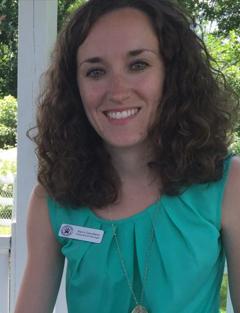Current Position:
Assistant Director of Development, Connecticut Humane Society
What were you doing before entering the Master’s in Animals and Public Policy (MAPP) program?
I joined the MAPP program shortly after completing my undergraduate studies at Union College. While evaluating my post-grad options, I discovered the program by accident when a friend (who ultimately enrolled as a Tufts veterinary student) sent me a link. With a concentration in the sciences, yet a strong interest in public policy, the MAPP program was a natural fit for my next step.
What aspects of MAPP led to your decision to join the program?
The renowned reputation of Tufts as a leader in veterinary medicine and animal care overall, combined with the interdisciplinary nature of the MAPP program itself, were the primary drivers of my decision to enroll. A lot of times, and my experience included, a young person doesn’t know the true realm of career pathways that are available if they want to work with animals. For a good portion of my school career, I thought my only options were to become a veterinarian or maybe even a marine biologist. Life experiences show you there are truly additional pathways in the field of animal welfare, and for me the MAPP program was a logical place to advance my learning and build and reinforce skills that would make me an effective agent of change for those I serve.
In what ways do you use your MAPP in your current position?
Currently at the Connecticut Humane Society, I oversee a team responsible for fundraising (individual giving, planned giving and grant-writing specifically), marketing and communications, and community outreach (veterinary wellness services for underserved populations, humane education for youth, and workshops for adult learners). With CHS’ three locations, each with their own unique audiences and needs, I work daily at the intersection of companion animals and public policy, strategizing and communicating on everything from mission delivery, to education and legislative efforts, the shifting dynamic of New England animal shelters and more.
Tell us about your MAPP project or preceptorship. In what ways did it help you form your career goals?
My time at Tufts was truly the highlight of my academic pursuits, and the launching pad for my career. I use a systems-based methodology that I refined in high school for program design and evaluation. Within that process is thoughtfully engaging stakeholders, a key element reinforced in my MAPP projects, whether it was surveying animal control officers on their perceptions of the link between animal cruelty and domestic violence, or communicating with dairy farmers on husbandry perceptions and practices and the marketing strategy surrounding them.
What did you like most about the MAPP program?
I cherish the lifelong connections to classmates and program alum that I have made. These relationships have fostered my growth professionally and personally. In this vein, I continually find myself humbled when reading about all of the accomplishments of those who came before as well as after me in this small yet prestigious program.
MAPP Capstone Research Project: Dehorning practices and perceptions of southern New England dairy farmers
